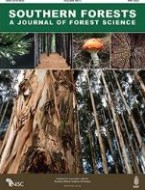Shea (Vitellaria paradoxa) butter is an important internationally recognised economic commodity because of its food and medicinal potentials. However, access to finance for small-scale forest enterprises such as shea butter production and marketing remains a fundamental problem, which affects the growth and performance of these enterprises. This study, therefore, assessed the financing schemes and delivery mechanisms available for the production and marketing of the product in Tamale, Northern Region of Ghana. It also identified the financial structures available to shea butter producers, including constraints of the financial delivery mechanisms. Using a social survey, the study purposively selected and interviewed 83 women who engaged in shea butter processing. Of these, 86% were full-time processors of shea butter and 14% were involved in other businesses, such as petty trading, groundnut and rice processing. The study revealed low patronage of financial services as only 18% of the respondents took loans. A high proportion (82%) of the respondents were under contract financing with companies that purchased the shea butter. This financing arrangement made it difficult for the women to expand their activities as they usually were unable to negotiate and receive competitive prices for their shea butter. Non-governmental organisations and some financial organisations were involved in providing technical support services to the producers. However, there was an absence of continuous support services in credit management. The high illiteracy rate (97%) of shea butter producers made it challenging for the women to access formal training programmes to make them aware of opportunities that exist for financing their business. There is the need for targeted collaboration among stakeholders to improve existing financing schemes. In the long term, there should be policies to standardise the activities of the shea butter industry to improve access to credit, which could lead to the sustainable growth of these enterprises.

